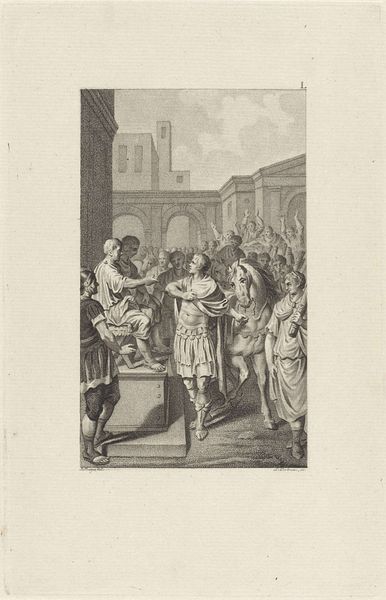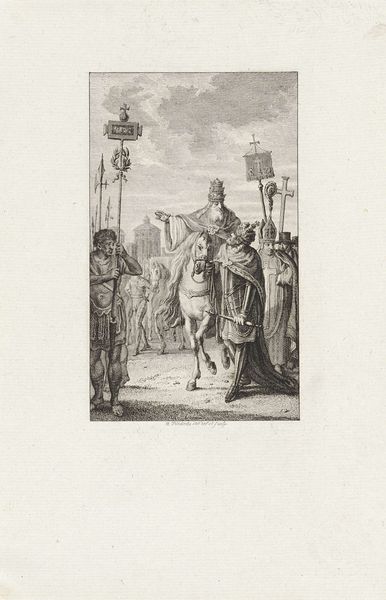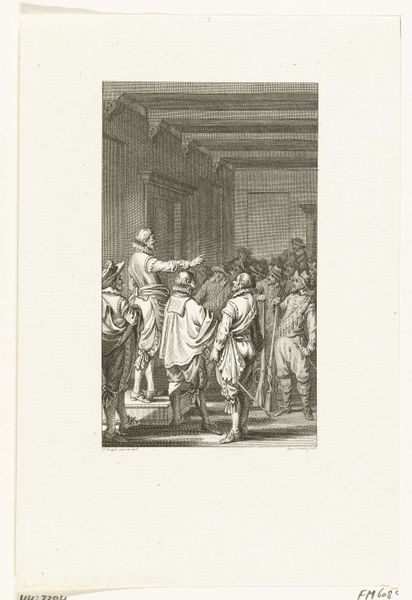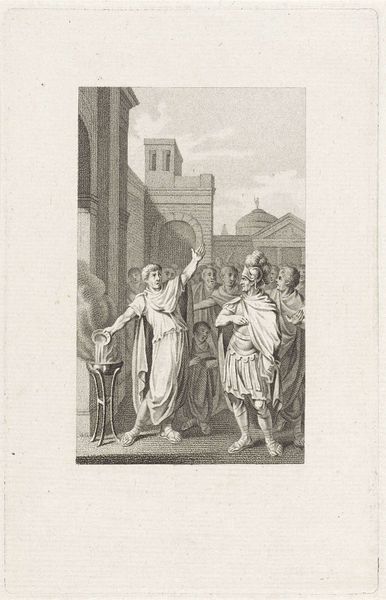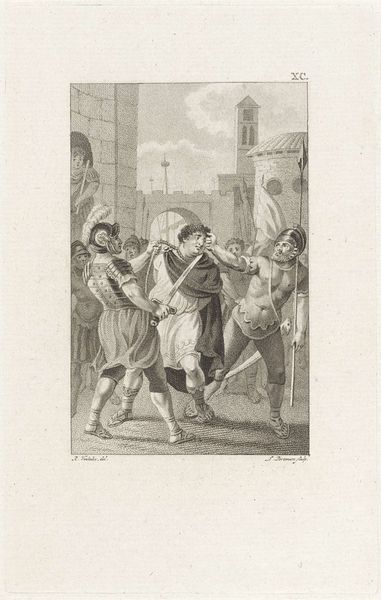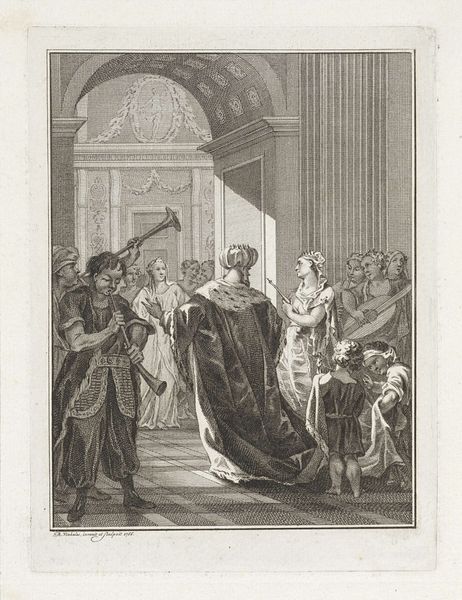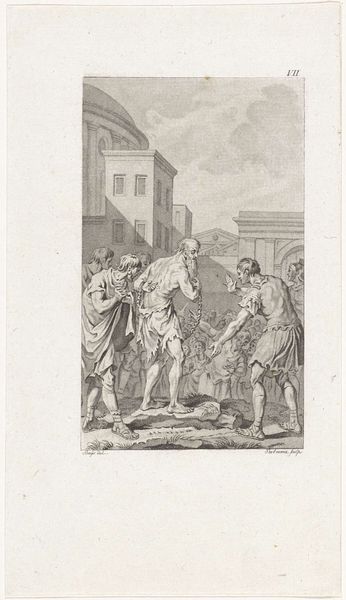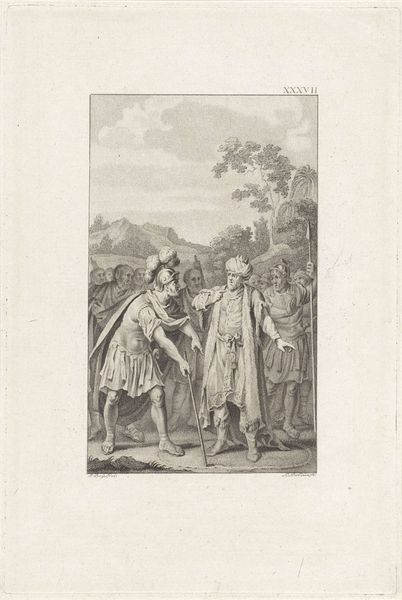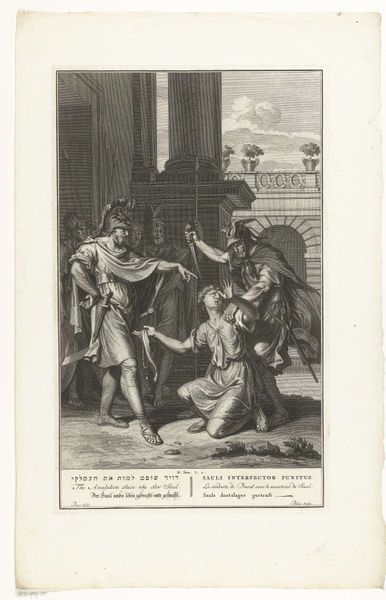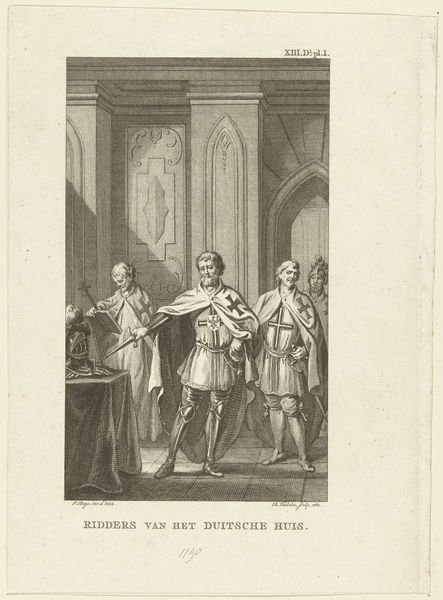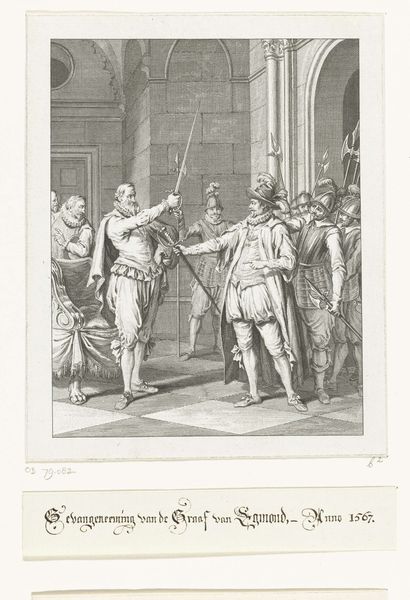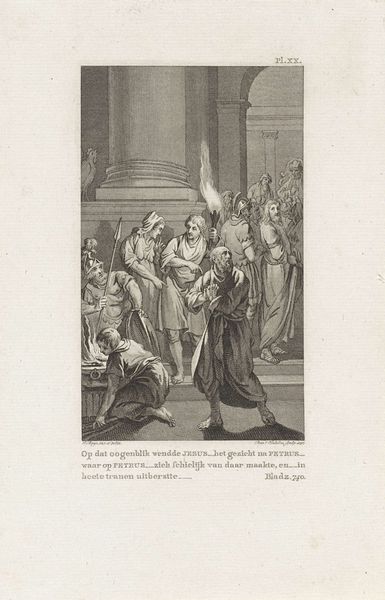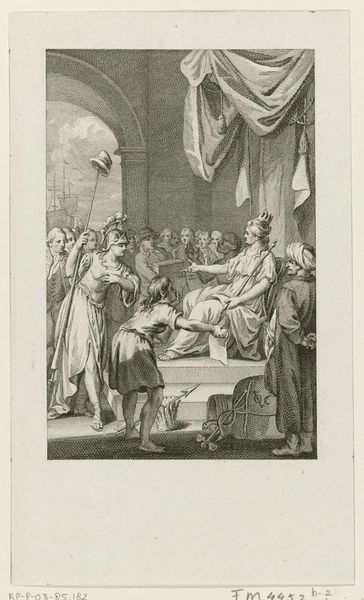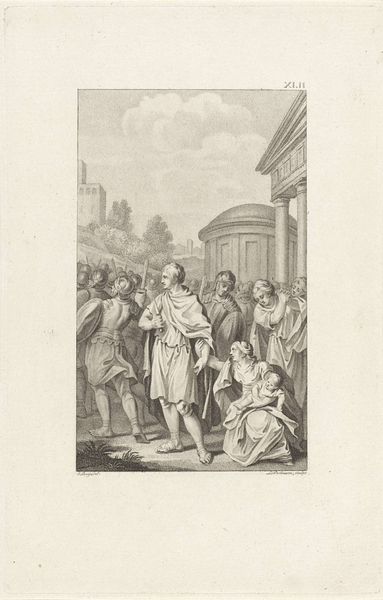
print, engraving
#
neoclacissism
#
narrative-art
# print
#
old engraving style
#
classical-realism
#
figuration
#
history-painting
#
engraving
Dimensions: height 200 mm, width 136 mm
Copyright: Rijks Museum: Open Domain
Curator: Oh, this engraving! It immediately feels like a morality play frozen in time. The stark contrast and meticulous lines create such a weighty atmosphere. Editor: Indeed. What you're responding to there stems from a moment rendered by Ludwig Gottlieb Portman around 1800. This print, titled "Hoofd van Pompeius naar Caesar gebracht," which translates to "The Head of Pompey Brought to Caesar," presents a very specific interpretation of power, betrayal, and historical reckoning. Curator: It's so neoclassical in its presentation, right? The cool detachment even amidst the grisly subject matter. I think that sense of order only amplifies the shock of… well, of that severed head presented on a platter. You have Caesar turning away but almost wanting to see. What is it about? Editor: In essence, Portman offers a commentary on the consequences of civil war within the Roman Republic, echoing through centuries of political strife, especially revolutionary France. The delivery of Pompey’s head to Caesar becomes a point of analysis: who benefits? What does it reveal about the men responsible and those impacted, their status, and about the structures that enabled that type of treachery? Curator: And the women in the background are left to hold on. It hits at that point about whose histories we retell and center and who is omitted when such things happen in civilizations. But that specific composition...the posture...it speaks to our complicated relationship with celebrity even when it ends. It shows what can come out when all that’s left is power. Editor: Yes! Consider how Pompey's defeat and subsequent assassination had implications across Roman social strata, as seen here. This wasn't merely political intrigue; it affected commerce, family structures, freedom of expression. What does it reveal when those aspects are no longer available, when we don't understand each other? Curator: That kind of reading, in particular the idea of the death of civilizations, reminds me how easily histories can be distorted, manipulated to justify atrocities, or to celebrate problematic victories. A reminder that these echoes resonate even now. Editor: Exactly. "Hoofd van Pompeius naar Caesar gebracht” uses history not just as spectacle, but as a lesson…or rather, a persistent, unnerving question. And with it, even a slight invitation for us to not allow those sorts of decisions be possible. Curator: Yes. A vital intervention, and it makes you think.
Comments
No comments
Be the first to comment and join the conversation on the ultimate creative platform.
